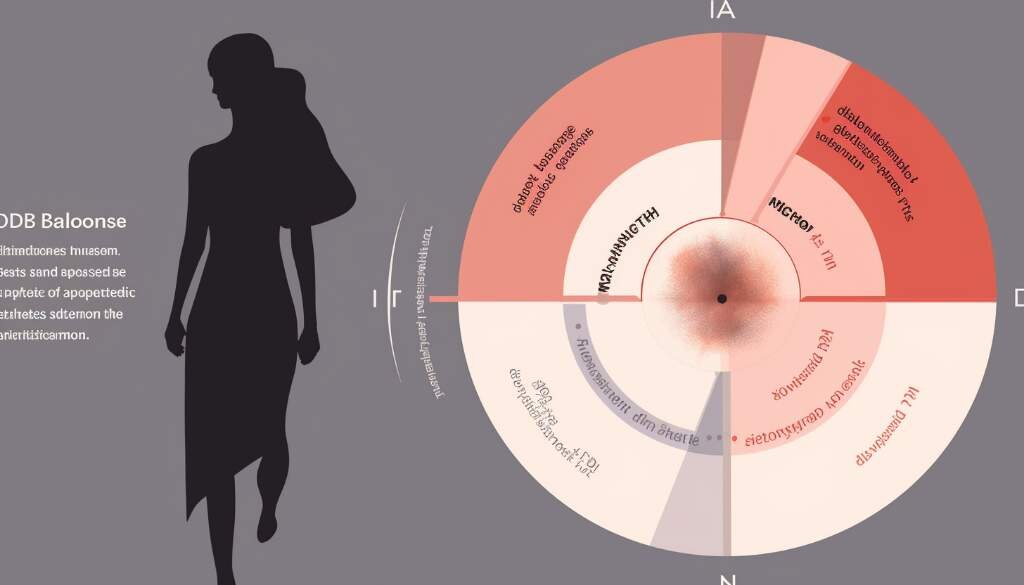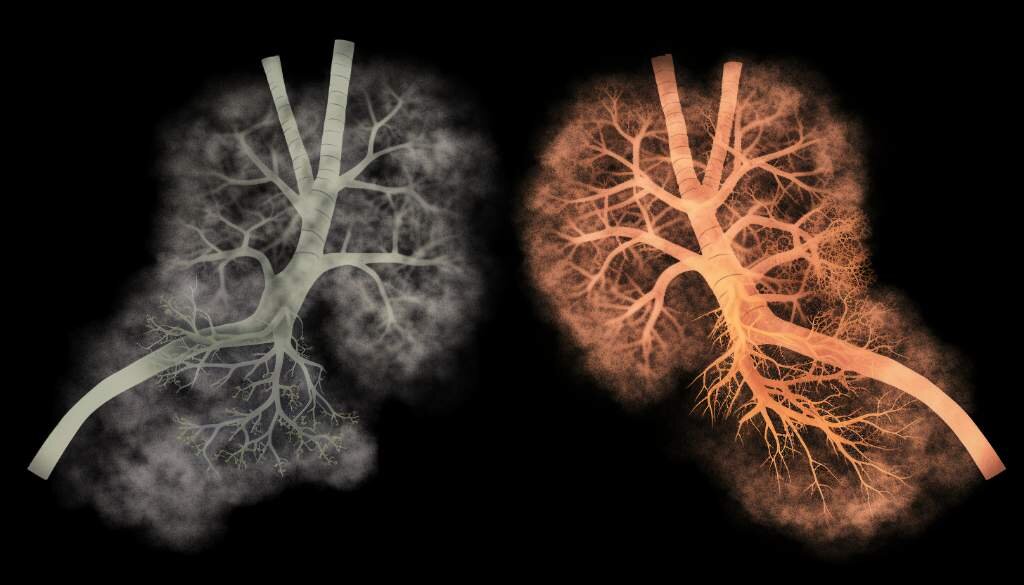
Introduction
Testosterone is a hormone that plays a crucial role in men's health, influencing various aspects of their well-being. Understanding testosterone and its impact is essential for maintaining optimal health and vitality.

Understanding Testosterone
Testosterone is a vital hormone that plays a crucial role in men's health. Understanding Testosterone is essential for comprehending its impact on various aspects of the male body. In this section, we will explore the factors that influence testosterone levels and delve into the effects of smoking on testosterone production and hormonal balance. Additionally, we will discuss how smoking can adversely affect fertility and sexual health in men. Lastly, we will address the question of whether quitting smoking can reverse the decline in testosterone levels, as well as the overall benefits of quitting for hormonal balance and testosterone production. Let's begin by understanding what testosterone is and its role in men's health.
What is testosterone and its role in men's health?
Testosterone is a hormone that plays a crucial role in men's health. It is the primary male sex hormone and is responsible for the development and maintenance of male characteristics. Testosterone is produced mainly in the testicles, although a small amount is also produced in the adrenal glands.
Testosterone serves various functions in the body, including:
- Promoting sexual and reproductive development: Testosterone plays a key role in the development of male sex organs during puberty. It is responsible for the growth of the penis and testicles, as well as the deepening of the voice. It also stimulates the production of sperm.
- Maintaining sexual function: Testosterone is essential for maintaining a healthy libido (sex drive), as well as erectile function. It helps in the regulation of sexual desire and arousal.
- Contributing to muscle and bone health: Testosterone plays a crucial role in the growth and maintenance of muscle mass and strength. It promotes protein synthesis and helps in the formation of new muscle fibers. Additionally, testosterone helps to maintain bone density, preventing conditions like osteoporosis.
- Affecting mood and cognitive function: Testosterone influences mood, energy levels, and cognitive function. Low levels of testosterone may lead to symptoms such as fatigue, irritability, decreased concentration, and depression.
- Promoting overall well-being: Testosterone is involved in the regulation of various bodily processes and systems. It contributes to cardiovascular health by helping to maintain healthy cholesterol levels and regulating blood pressure. Testosterone also plays a role in the distribution of fat in the body.
Optimal testosterone levels are essential for men's overall health and well-being. However, testosterone levels naturally decline with age, starting in the late 20s or early 30s. Various factors can influence testosterone levels, including lifestyle choices, such as smoking, which will be discussed in the following sections.
Factors that influence testosterone levels
Testosterone levels in men can be influenced by various factors. Understanding these factors is crucial in maintaining optimal testosterone levels for overall health and well-being. Here are some of the key factors that can influence testosterone levels:
- Age: Testosterone levels naturally decline with age. As men get older, their production of testosterone decreases gradually. This decline typically starts after the age of 30.
- Obesity: Excess body fat, especially abdominal fat, has been linked to lower testosterone levels. Adipose tissue can convert testosterone into estrogen, leading to a hormonal imbalance.
- Diet: Certain nutrients play a role in testosterone production. Zinc, vitamin D, and healthy fats, such as omega-3 fatty acids, are important for maintaining optimal testosterone levels. A diet lacking in these nutrients can negatively impact testosterone production.
- Physical activity: Regular exercise, particularly resistance training, can help boost testosterone levels. Engaging in weightlifting, high-intensity interval training (HIIT), and other forms of strength training can have a positive impact on testosterone production.
- Sleep: Inadequate sleep or poor quality sleep can lead to reduced testosterone levels. Getting enough restful sleep is essential for hormone production and overall health.
- Stress: Chronic stress can disrupt the hormonal balance in the body, including testosterone production. High levels of stress hormone, such as cortisol, can interfere with the normal functioning of the endocrine system and suppress testosterone production.
These are just some of the factors that can influence testosterone levels. It is important to note that individual variations exist, and consulting with a healthcare professional is recommended for a comprehensive evaluation of testosterone levels and any potential underlying factors.

Effects of Smoking on Testosterone Levels
The effects of smoking on testosterone levels refer to the impact that smoking has on the production and regulation of testosterone in the male body. Smoking has been found to have a negative effect on testosterone levels, leading to various health implications.
In the following subsections, we will delve into the link between smoking and decreased testosterone levels, as well as the mechanisms through which smoking affects testosterone production. We will also explore the impact of smoking on hormone regulation and the imbalance between testosterone and estrogen in smokers. Moreover, we will discuss the negative effect of smoking on sperm quality, its implications for fertility in men, and how smoking affects sexual health. Finally, we will examine whether quitting smoking can reverse testosterone decline and the benefits of quitting smoking for hormonal balance and testosterone levels.
The link between smoking and decreased testosterone levels
Smoking has been found to be strongly linked to decreased testosterone levels in men. Testosterone is the primary male sex hormone responsible for the development and maintenance of male characteristics. It plays a crucial role in various aspects of men's health, including muscle strength, bone density, mood regulation, and sexual function.
Several studies have shown that smokers have significantly lower testosterone levels compared to non-smokers. One study published in the Journal of Clinical Endocrinology & Metabolism found that men who smoke have approximately 15% lower testosterone levels than non-smokers. Another study conducted by the University of Hong Kong showed that smoking can decrease testosterone levels by up to 23%.
The exact mechanisms through which smoking affects testosterone production are not fully understood. However, it is believed that smoking leads to oxidative stress and inflammation in the body, which can damage the Leydig cells in the testes responsible for testosterone production.
Furthermore, smoking has been shown to disrupt the hypothalamic-pituitary-gonadal axis, which regulates testosterone production. Nicotine and other harmful chemicals present in cigarettes can interfere with the normal functioning of this axis, leading to decreased testosterone production.
It is important to note that the negative impact of smoking on testosterone levels is not limited to active smokers. Studies have also found that exposure to secondhand smoke can have similar detrimental effects on testosterone levels. This means that even if you are not a smoker yourself, being exposed to smoke in your environment can still affect your testosterone levels.
Low testosterone levels have been associated with a wide range of health issues, including decreased muscle mass, fatigue, depression, erectile dysfunction, and decreased libido. Therefore, it is crucial for men to be aware of the link between smoking and decreased testosterone levels and make efforts to quit smoking or reduce their exposure to smoke.
Mechanisms through which smoking affects testosterone production
Smoking can have detrimental effects on testosterone production in men. There are several mechanisms through which smoking affects testosterone levels:
- Inhibition of testosterone synthesis: Smoking has been found to interfere with the synthesis of testosterone in the Leydig cells of the testes. The harmful chemicals present in tobacco smoke, such as nicotine and carbon monoxide, disrupt the normal functioning of these cells, leading to reduced testosterone production. This inhibition of testosterone synthesis can contribute to lower overall testosterone levels in smokers.
- Increase in testosterone metabolism: Smoking has been shown to increase the metabolism of testosterone in the liver. This means that testosterone is broken down more quickly, leading to lower circulating levels of the hormone. The exact mechanisms underlying this increased metabolism are not fully understood, but it is believed to be related to the oxidative stress caused by smoking.
- Alteration of hormone-binding proteins: Smoking has been found to alter the levels and activity of hormone-binding proteins, such as sex hormone-binding globulin (SHBG). SHBG binds to testosterone, regulating its availability for use by the body. Studies have shown that smoking can decrease SHBG levels, resulting in higher levels of free testosterone but lower overall testosterone levels. This disruption in hormone-binding proteins can disrupt the balance and regulation of testosterone in the body.
- Inflammation and oxidative stress: Smoking is known to increase inflammation and oxidative stress throughout the body. These inflammatory and oxidative processes can directly impair testosterone production and function. Chronic inflammation can disrupt the normal functioning of the testes and other glands involved in testosterone production, while oxidative stress can damage the Leydig cells and inhibit their ability to produce testosterone. The resulting inflammation and oxidative stress can lead to lower testosterone levels in smokers.
- Disruption of hypothalamic-pituitary-gonadal axis: The hypothalamic-pituitary-gonadal axis is a complex hormonal feedback loop involved in the regulation of testosterone production. Smoking has been shown to disrupt this axis, leading to dysregulation of testosterone production. It is believed that the chemicals in tobacco smoke can interfere with the release of gonadotropin-releasing hormone (GnRH) from the hypothalamus, which in turn affects the secretion of luteinizing hormone (LH) from the pituitary gland. LH plays a crucial role in stimulating testosterone production in the testes, so any disruption in this process can lead to decreased testosterone levels.

Smoking and Hormonal Balance
Smoking and Hormonal Balance refers to the relationship between smoking and the regulation of hormones in the body. Smoking has been found to have a significant impact on the balance of hormones, including testosterone and estrogen, which play crucial roles in various bodily functions. Understanding the effects of smoking on hormonal balance is essential for both smokers and non-smokers alike.
In the following sections, we will explore the specific ways in which smoking affects hormonal balance. We will delve into the link between smoking and decreased testosterone levels, as well as the mechanisms through which smoking affects testosterone production. Additionally, we will discuss the broader impact of smoking on hormone regulation and the resulting imbalance between testosterone and estrogen in smokers.
The impact of smoking on hormone regulation
Smoking has a significant impact on hormone regulation in the body. Hormones are chemical messengers that play a crucial role in various bodily functions, including growth, metabolism, and reproduction. When it comes to smoking, several factors contribute to the disruption of hormone regulation.
Firstly, smoking increases the production of stress hormones such as cortisol and adrenaline. These hormones adversely affect the balance of other hormones in the body, including testosterone. Higher levels of stress hormones can lead to decreased testosterone production, as the body prioritizes the production of stress hormones over other hormones.
Secondly, smoking introduces harmful chemicals into the body, such as nicotine and carbon monoxide. These chemicals can directly interfere with hormone production and function. For example, nicotine disrupts the release of luteinizing hormone (LH) from the pituitary gland, which is responsible for signaling the testes to produce testosterone. This interference can result in lower testosterone levels in smokers.
Moreover, smoking has been linked to insulin resistance, a condition where the body's cells become less responsive to the hormone insulin. Insulin resistance can disrupt the hormone balance by affecting the production and metabolism of testosterone. In addition, smoking is associated with higher levels of estrogen, the primary female sex hormone, in both men and women. This imbalance between testosterone and estrogen can further disrupt hormone regulation and lead to various health issues.
Furthermore, smoking has been found to decrease the levels of sex hormone-binding globulin (SHBG) in the body. SHBG is a protein that binds to testosterone and regulates its availability. Lower levels of SHBG mean that more testosterone is free and available in the bloodstream. This can lead to an imbalance in hormone levels and potentially increase the risk of developing conditions such as prostate cancer.
In summary, smoking has a detrimental impact on hormone regulation. It disrupts the balance of various hormones, including testosterone, through multiple mechanisms. This disruption can have far-reaching effects on overall health and wellbeing.
Imbalance between testosterone and estrogen in smokers
When it comes to hormonal balance, smoking can have a significant impact on the delicate equilibrium between testosterone and estrogen levels in the body. Testosterone is the primary male sex hormone responsible for the development of masculine characteristics, while estrogen is the primary female sex hormone. Although testosterone is predominantly found in men, it also plays a crucial role in women's health.
Smoking disrupts the hormonal balance by influencing the production and metabolism of these hormones. Research suggests that smoking is associated with higher estrogen levels in both men and women, leading to an imbalance between testosterone and estrogen. This imbalance can have various consequences for the body.
One consequence is the development of gynecomastia, a condition characterized by the enlargement of breast tissue in males. High estrogen levels in smokers can stimulate breast tissue growth, leading to the appearance of breasts similar to females. This can cause psychological distress and discomfort for many male smokers.
In addition to gynecomastia, an imbalance between testosterone and estrogen can also lead to decreased sex drive and erectile dysfunction in men. Testosterone is a key hormone for maintaining sexual desire and performance, and when it is suppressed by higher estrogen levels, men may experience a decline in their sexual health.
Furthermore, an excess of estrogen in men can contribute to the development of infertility. Estrogen plays a role in regulating sperm production, and elevated levels can result in decreased sperm count and impaired sperm quality. This makes it more difficult for men who smoke to conceive a child.
In women, the imbalance between testosterone and estrogen caused by smoking can lead to irregularities in the menstrual cycle, impaired fertility, and increased risks of complications during pregnancy. It's important to note that smoking during pregnancy has been linked to numerous adverse health effects for both the mother and the developing fetus.
Overall, the imbalance between testosterone and estrogen in smokers can have detrimental effects on both male and female reproductive health. Quitting smoking is an essential step in restoring hormonal balance and mitigating these negative consequences.

Smoking, Fertility, and Sexual Health
Smoking, Fertility, and Sexual Health: This section explores the relationship between smoking and its impact on fertility and sexual health in men. Understanding the effects of smoking on reproductive health is crucial for individuals looking to make informed decisions about their lifestyle choices.
The negative effect of smoking on sperm quality
Smoking has been found to have a negative effect on sperm quality in men, which can have significant implications for fertility and reproductive health. Research has consistently shown that smokers tend to have lower sperm counts, reduced sperm motility, and abnormal sperm morphology compared to non-smokers.
One of the ways smoking affects sperm quality is through oxidative stress. Cigarette smoke contains numerous harmful chemicals, including free radicals, which are highly reactive molecules that can cause damage to cells and DNA. When these free radicals accumulate in the body, they can disrupt the normal functioning of sperm cells and negatively impact their quality.
Furthermore, smoking has been found to increase the levels of reactive oxygen species (ROS) in the semen, which leads to an imbalance between oxidative stress and antioxidant defenses. ROS can directly damage the sperm cells, decreasing their viability and impairing their ability to fertilize an egg.
Smoking is also associated with an increase in DNA damage in sperm cells. The toxins present in cigarette smoke can cause mutations in the DNA of sperm, resulting in genetic abnormalities that can be passed on to offspring. These genetic abnormalities may increase the risk of miscarriage, birth defects, and developmental disorders in children.
Additionally, smoking has been linked to hormonal imbalances that can further impact sperm quality. Tobacco smoke contains chemicals that disrupt the production and regulation of hormones in the body, including testosterone. Decreased testosterone levels can affect sperm production and maturation, leading to lower sperm counts and impaired sperm function.
It's important to note that the negative effects of smoking on sperm quality are not reversible overnight. Quitting smoking is the best course of action to improve sperm quality and fertility. Research has shown that men who quit smoking may experience improvements in sperm parameters such as count, motility, and morphology. However, it may take several months for these improvements to become evident as the body needs time to repair the damage caused by smoking.
In conclusion, smoking has a detrimental impact on sperm quality, which can have long-lasting effects on fertility and reproductive health. Quitting smoking is crucial for individuals who are trying to conceive or are concerned about their fertility. By quitting smoking, men can increase their chances of achieving a healthy pregnancy and improve their overall reproductive health.
Implications of smoking on fertility in men
Smoking has been linked to numerous negative effects on fertility in men. Research has shown that smokers are more likely to experience infertility compared to non-smokers. This is because smoking can impact the quality and quantity of sperm, affecting the overall fertility potential of men.
One of the ways smoking affects fertility is by reducing sperm count. Studies have found that smokers tend to have lower sperm counts compared to non-smokers. Sperm count refers to the number of sperm cells present in a semen sample. A low sperm count can make it more difficult for couples to conceive, as it reduces the chances of a sperm successfully fertilizing an egg.
In addition to reducing sperm count, smoking can also affect sperm motility. Sperm motility refers to the ability of sperm cells to move and swim effectively. Healthy sperm need to be able to swim through the female reproductive tract to reach the egg for fertilization. Smoking can impair this ability, making it harder for sperm to reach the egg and achieve fertilization.
Furthermore, smoking has been associated with DNA damage in sperm cells. In a study published in the journal Human Reproduction, researchers found that smokers had higher levels of DNA fragmentation in their sperm compared to non-smokers. DNA fragmentation refers to damage to the genetic material within sperm cells. This can affect the quality of the sperm and increase the risk of genetic abnormalities in offspring.
Overall, the implications of smoking on fertility in men are significant. Smoking can decrease sperm count, impair sperm motility, and increase the risk of DNA damage in sperm cells. These factors can greatly reduce the chances of successful conception and increase the risk of infertility in smokers.
How smoking affects sexual health
Smoking has been shown to have a negative impact on sexual health in men. This is due to the harmful chemicals in cigarettes that can directly affect the function of the male reproductive system.
One of the key ways that smoking affects sexual health is by causing erectile dysfunction. Studies have found that smokers are more likely to experience difficulties achieving and maintaining an erection compared to non-smokers. This is because smoking can damage blood vessels and reduce blood flow, which is essential for a healthy erection.
Additionally, smoking has been associated with a decrease in libido or sex drive. Nicotine and other harmful chemicals in cigarettes can interfere with the production and regulation of hormones such as testosterone, which plays a crucial role in sexual desire. The imbalanced hormone levels caused by smoking can lead to a decrease in sexual desire and interest.
Furthermore, smoking can also have negative effects on fertility and reproductive health. Research has shown that smoking can impair sperm production, reduce sperm count, and affect sperm motility. This can make it more difficult for couples to conceive and increase the risk of infertility.
The negative impact of smoking on sexual health is not limited to men. Secondhand smoke exposure has been found to affect female sexual function as well. It can lead to reduced lubrication and arousal, and can also contribute to difficulties in achieving orgasm.
Quitting smoking can significantly improve sexual health. Studies have demonstrated that men who quit smoking experience improvements in erectile function, sexual satisfaction, and libido. This is because when smoking is stopped, the blood vessels can start to heal, allowing for better blood flow to the penis. Hormonal balance can also be restored, which can have a positive impact on sexual desire and performance.
In conclusion, smoking has detrimental effects on sexual health in men. It can contribute to erectile dysfunction, reduced libido, and fertility issues. Quitting smoking is a crucial step to improving sexual health and overall well-being.

Quitting Smoking and Testosterone Levels
Quitting Smoking and Testosterone Levels: Quitting smoking can have a significant impact on testosterone levels in men. Testosterone is a hormone that plays a crucial role in various aspects of men's health, including muscle mass, bone density, libido, and mood. When men quit smoking, it can help restore and improve testosterone levels, leading to numerous health benefits.
Does quitting smoking reverse testosterone decline?
Quitting smoking is a positive step towards improving overall health and well-being. When it comes to testosterone levels, quitting smoking can have a beneficial effect, although the extent of recovery may vary from person to person.
Research suggests that smoking is associated with lower testosterone levels in men. However, quitting smoking can help to reverse testosterone decline to some extent. This is because smoking can negatively impact the functioning of the testes and their ability to produce testosterone. By quitting smoking, the harmful effects of smoking on the testes can be mitigated over time.
When a person quits smoking, their body begins to repair the damage caused by smoking. The production of testosterone is influenced by various factors, and quitting smoking can help restore hormonal balance. However, it is important to note that the recovery of testosterone levels may take time and varies from person to person.
Studies have shown that the recovery of testosterone levels after quitting smoking can range from a few weeks to several months. It is also affected by other lifestyle factors, such as diet, exercise, and overall health. Maintaining a healthy lifestyle post-smoking cessation can support the recovery and maintenance of optimal testosterone levels.
Quitting smoking not only has a positive impact on testosterone levels but also improves overall hormonal balance. Smoking disrupts the delicate balance between testosterone and estrogen in the body. By quitting smoking, the ratio between these hormones can be restored, contributing to better overall hormonal health.
In addition to the effects on testosterone levels, quitting smoking has numerous other health benefits. It reduces the risk of various health conditions, improves cardiovascular health, and enhances respiratory function. These improvements in overall health can indirectly support hormonal balance and testosterone production.
In conclusion, quitting smoking can help to reverse testosterone decline to some degree. While the extent of recovery varies from person to person, quitting smoking is a crucial step towards improving hormonal balance and overall health. By adopting a healthy lifestyle and giving the body time to recover, individuals can optimize their testosterone levels and enhance their well-being.
Benefits of quitting smoking for hormonal balance and testosterone levels
Quitting smoking can have a positive impact on hormonal balance and testosterone levels in men. When you quit smoking, you allow your body to recover from the harmful effects of tobacco smoke, which can directly affect hormone regulation and testosterone production.
One of the benefits of quitting smoking is the restoration of hormonal balance. Smoking has been shown to disrupt the delicate balance between testosterone and estrogen in the body. Tobacco smoke contains harmful chemicals, such as cadmium and lead, that can interfere with the normal functioning of the endocrine system. These chemicals can mimic estrogen, leading to an imbalance in hormonal levels. However, when you quit smoking, your body can gradually restore its natural hormone balance.
Furthermore, quitting smoking can help to increase testosterone levels. Smoking has been linked to decreased testosterone production in several ways. Firstly, tobacco smoke contains toxic chemicals that can damage the Leydig cells in the testes, which are responsible for testosterone production. Quitting smoking allows these cells to repair and regenerate, leading to improved testosterone production. Secondly, smoking has been found to increase the production of the enzyme aromatase, which converts testosterone into estrogen. By quitting smoking, you can reduce the activity of aromatase and prevent the excessive conversion of testosterone into estrogen.
In addition to restoring hormonal balance and increasing testosterone levels, quitting smoking can also benefit overall health and well-being. Smoking is known to have detrimental effects on cardiovascular health, respiratory function, and immune system function. By quitting smoking, you can improve your overall health, which can indirectly contribute to better hormonal balance and testosterone levels.
It is important to note that the benefits of quitting smoking for hormonal balance and testosterone levels may take time to fully manifest. The body needs time to recover and heal from the damage caused by smoking. Consistency and patience are key when it comes to quitting smoking and reaping the rewards for your hormonal health.

Conclusion
In conclusion, testosterone plays a crucial role in men's health, influencing various aspects of their well-being, including fertility, sexual health, and hormone regulation. Smoking has been found to have a detrimental effect on testosterone levels, leading to imbalances in hormonal regulation, decreased fertility, and negative impacts on sexual health.
Smoking affects testosterone production through various mechanisms, such as oxidative stress, inflammation, and disruption of hormone-regulating enzymes. It also leads to an imbalance between testosterone and estrogen in smokers, further exacerbating the hormonal dysregulation.
Furthermore, smoking has been linked to a decline in sperm quality and a reduction in fertility. It has been found to affect sperm count, morphology, and motility, making it harder for couples to conceive. Additionally, smoking has been shown to have negative effects on sexual health, leading to erectile dysfunction and decreased libido.
However, there is hope for smokers looking to improve their testosterone levels and overall hormonal balance. Research suggests that quitting smoking can lead to an improvement in testosterone levels, as well as restore hormonal balance. Quitting smoking not only benefits testosterone production but also has numerous health benefits, including reduced risk of cardiovascular diseases and other smoking-related health issues.
In conclusion, smoking has a detrimental effect on testosterone levels, hormone regulation, fertility, and sexual health in men. Quitting smoking is a crucial step towards improving testosterone levels and overall well-being. It is recommended that individuals who smoke, especially those experiencing symptoms of low testosterone or fertility issues, seek out professional help and support to quit smoking and improve their health.








